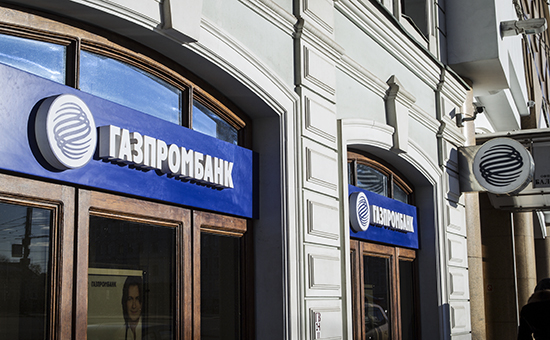VEB has received a record loss of 250 billion rubles. at the end of 2014. The main reasons for the losses began to provision charges for projects of the Winter Olympics in Sochi and Ukrainian credit risks. In 2015, Vnesheconombank will also receive a loss, management forecasts and analysts. However, the amount of remuneration for the top managers of the losses will not affect.
Vnesheconombank (VEB) in 2014 received a net loss under IFRS 249 700 000 000 rubles. against 8.5 billion rubles. net profit a year earlier. Despite the fact that the bank, performing the role of the Development Bank, “there is no task to be profitable”, this loss can be considered a record, she told reporters the deputy chairman of VEB Sergey Lykov. Even against the background of the results of the last crisis in 2008, when losses amounted to VEB 81.3 billion rubles.
The main culprit losses – huge expenses on creation of reserves. The bank last year was forced to form a 326.1 billion rubles. impairment provisions against 127.1 billion rubles. in 2013.
Most of this amount fell to Ukrainian credit risks and loan issued under the Olympic projects in Sochi. At the same time some of the expenses made provisions for Ukraine and what – under the Olympic credits Lykov did not specify.
Provision for Olympic loans was expected, as the VEB on behalf of the government imposed a moratorium until the end 2015 collection of current payments with the Olympic Investors. According to first deputy chairman of VEB Michael Poluboyarinov, corporation by September 1 of this year must submit to the government a report on the monitoring of the cash flow generated by the Olympic projects. After that, the government must decide – either to renew the moratorium, or apply measures of state support.
Against the background of the maximum years of VEB’s loss in 2014 to 2.6 trillion rubles. increased loan portfolio. Compared to last year it grew by about 43%.
Portfolio growth is associated with increasing lending volumes and a currency revaluation, since about half of the VEB issued loans – currency. This EBV has not reviewed the cost of credit after raising the key rate of the Central Bank. “We had to leave rates at the same level, which was recorded in the loan agreements,” – said Lykov.
The proportion of delinquency (over 30 days) in the loan portfolio was 17.2% . For problem loans EBV carries more than 30 days past due loans and restructured loans, indicates Poluboyarinov. It’s a tougher approach than commercial banks (they recognize problem loans overdue more than 90 days). Problem loans are reserved by 105%.
Meanwhile, the net interest income of the state corporation in the past year increased by 1.3% compared with a year earlier and amounted to 100.3 billion rubles.
Management VEB expects that the corporation incurred a loss in 2015, but it will be lower. VEB Chairman Vladimir Dmitriev already announced in late March that the loss of the bank, most likely, will be 2 times less than the result in 2014.
«If we talk about the loss of the bank, then such losses by the end of 2015 year, of course, will not. The bank tried to reserve the bulk of last year. The reserve has left more than 133 billion. Moreover, the state has allocated 200 billion rubles. just under the “Olympic duty,” – said Nadezhda Bozhenka analyst “Uralsib-Capital.” In addition, she said, no problem to implement the obligations to foreign investors will not. Already this year, investors could submit VEB 145 billion rubles. for early redemption, but did not do so.
Almost all the risks Vnesheconombank will take over the budget, the analyst IR “Finam” Anton forty. “The bank, which can not be called a bank, there is no problem making a profit, and, as I recall, in the charter established the principle of break-even. If, however, the state will not be pleased with the results of activities, it is likely to be followed by personnel changes. Therefore, the risk of default on the obligations of VEB almost entirely correspond to the state risks “- says forty.
However, according to deputy chairman of VEB’s Lykov, a record loss will not affect the system of remuneration of top management of the bank, as the KPI performance management of state corporations are not tied to financial results.
«Even though that VEB is not obliged to report to the Central Bank, the extent of loss is impressive,” – said “Gazeta.ru” Stanislav Volkov, head of credit rating institutions, “Expert RA”. According to Volkov, the most important indicator for foreign investors VEB laid down in covenants on Eurobonds VEB. And if the bank will carry out these obligations, but every year it becomes more difficult, the claims to it will not. However, according to Volkov, it is the special status of VEB suggests its occurrence in quite risky in terms of the profitability of projects. This is reflected in the financial results, especially in the acute phase of the crisis.



































